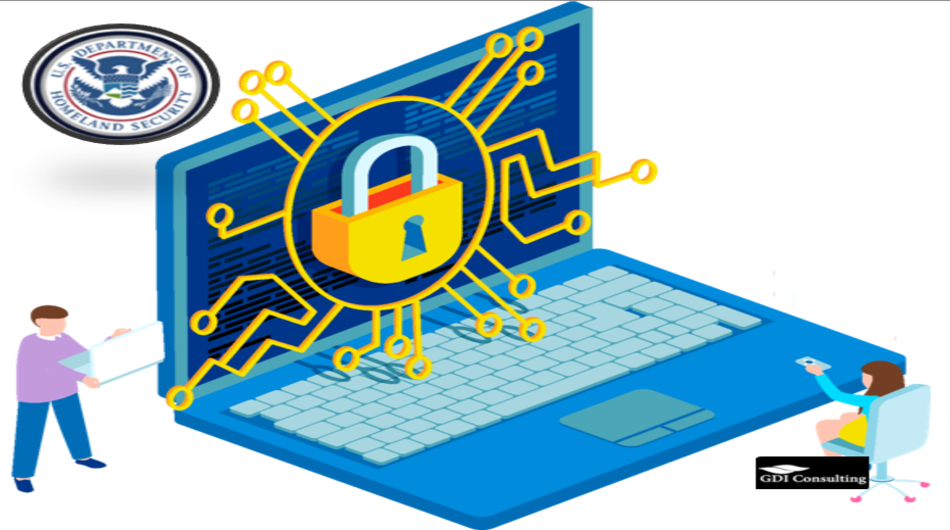Introduction
Cybersecurity is a vital component of national security, especially for the Department of Homeland Security (DHS), which is responsible for protecting the nation from cyber threats and ensuring the resilience of critical infrastructure. DHS requires a contractor to provide cybersecurity management and strategy support services to enhance its cybersecurity posture and capabilities. This article will provide an overview of the opportunity, the historical background, the RFP description, who should participate, and the challenges involved in pursuing this contract.
Historical Background
The Cybersecurity Management and Strategy Support (CMSS) contract is a follow-on to the Cybersecurity Strategy and Integration Support (CSIS) contract, which was awarded to Booz Allen Hamilton in 2016 for a five-year period with a ceiling value of $621 million. The CSIS contract provided DHS with strategic planning, policy development, governance, performance management, stakeholder engagement, and communications support for its cybersecurity programs and initiatives. The CMSS contract is expected to continue and expand these services, as well as incorporate new requirements such as cyber risk management, cyber workforce development, cyber threat intelligence, and cyber incident response.
RFP Description
The CMSS contract is a single-award, indefinite-delivery/indefinite-quantity (IDIQ) contract with a base period of one year and four one-year option periods. The estimated value of the contract is $10 million. The solicitation was released on September 15, 2023, and the proposals are due on October 15, 2023. The date of award is expected to be in November 2023, and the period of performance will be from the date of award through August 28, 2026.
The CMSS contractor will provide DHS with cybersecurity management and strategy support services across four task areas:
- Task Area 1: Cybersecurity Strategy and Policy Development. This task area involves developing, updating, and implementing cybersecurity strategies, policies, standards, guidelines, frameworks, roadmaps, plans, and directives for DHS and its components.
- Task Area 2: Cybersecurity Governance and Performance Management. This task area involves establishing, maintaining, and improving cybersecurity governance structures, processes, roles, responsibilities, authorities, and accountability mechanisms for DHS and its components. It also involves developing, collecting, analyzing, reporting, and improving cybersecurity performance metrics and indicators for DHS and its components.
- Task Area 3: Cybersecurity Stakeholder Engagement and Communications. This task area involves engaging and collaborating with internal and external stakeholders on cybersecurity issues, initiatives, programs, projects, and activities. It also involves developing and executing effective cybersecurity communications strategies, plans, products, and campaigns for DHS and its components.
- Task Area 4: Cybersecurity Risk Management and Operational Support. This task area involves providing risk management support for DHS’s cybersecurity programs and initiatives. It also involves providing operational support for DHS’s cybersecurity functions such as threat intelligence, incident response, vulnerability management, continuous diagnostics and mitigation (CDM), security operations center (SOC), identity management (IDM), cloud security (CS), supply chain risk management (SCRM), cyber workforce development (CWD), cyber hygiene (CH), cyber resilience (CR), cyber education (CE), cyber awareness (CA), cyber exercise (CEX), cyber audit (CAU), cyber compliance (CC), cyber acquisition (CAQ), cyber innovation (CI), cyber research and development (R&D), cyber test and evaluation (T&E), cyber training (CT), cyber simulation (CSIM), cyber forensics (CF), cyber law enforcement (CLE), cyber legal (CL), cyber privacy (CP), cyber ethics (CE), cyber international affairs (CIA), etc.
Who Should Participate
The CMSS contract is open to all contractors who have the relevant experience, qualifications, capabilities, resources, personnel, facilities, and security clearances to perform the required services. The contractor must have a Top Secret facility clearance and be able to obtain Sensitive Compartmented Information (SCI) access for key personnel. The contractor must also have experience in providing similar services to DHS or other federal agencies with comparable missions and scope.
The CMSS contract is a highly competitive opportunity that requires a strong capture strategy and proposal development process. The contractor must demonstrate a thorough understanding of DHS’s cybersecurity mission, vision, goals, objectives, challenges, needs, priorities, and expectations. The contractor must also showcase its past performance, technical approach, management approach, quality assurance plan, transition plan, and price proposal in a clear, concise, and compelling manner.
Challenges
The CMSS contract poses several challenges for potential contractors,
such as:
- The complexity and diversity of DHS’s cybersecurity programs and initiatives that span across multiple domains, components, stakeholders, and functions.
- The dynamic and evolving nature of the cybersecurity threat landscape and the need to keep pace with the latest technologies, trends, and best practices.
- The high level of scrutiny and oversight from DHS’s leadership, Congress, the Office of Management and Budget (OMB), the Government Accountability Office (GAO), the Inspector General (IG), and other external entities.
- The limited availability of qualified and cleared cybersecurity personnel and the need to recruit, retain, train, and motivate them.
- The tight schedule and budget constraints and the need to deliver high-quality services within time and cost parameters.
Conclusion
The CMSS contract is a strategic opportunity for contractors who want to support DHS in enhancing its cybersecurity posture and capabilities. The contract offers a long-term partnership with DHS and a potential for growth and expansion. However, the contract also requires a high level of commitment, expertise, innovation, and performance from the contractor. Therefore, contractors who are interested in pursuing this opportunity should start preparing early, conduct thorough market research and competitive analysis, develop a robust capture plan and proposal strategy, and leverage their strengths and differentiators to win the contract.

